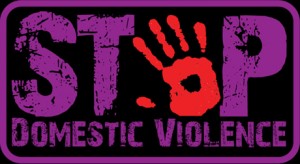Sixteen days of activism against gender-based violence begins
 The United States Embassy in Accra, in collaboration with the Ghana Government and Civil Society Organizations (CSOs), on Tuesday began 16 days of activism against gender-based violence.
The United States Embassy in Accra, in collaboration with the Ghana Government and Civil Society Organizations (CSOs), on Tuesday began 16 days of activism against gender-based violence.
From November 25, the International Day for the Elimination of Violence against Women, to December 10, Human Rights Day, the 16 Days of Activism against Gender-Based Violence Campaign is a time to galvanize action to end violence against women and girls around the world.
This year, the United Nations Secretary-General’s Campaign UNiTE to End Violence against Women invites you to “Orange YOUR Neighbourhood.” Take the UNiTE campaign to local streets, shops and businesses, and organize “Orange Events” in your own neighbourhoods between November 25 and December 10, 2014.
The date of November 25 was chosen to commemorate the Mirabal sisters, three political activists from the Dominican Republic, who were brutally assassinated in 1960 during the Rafael Trujillo dictatorship.
To mark the genesis of the 16 days activism against gender-based violence in Ghana, the US Embassy, organized a day’s forum for CSOs, the Domestic Violence and Victims Support Unit (DOVVSU) of the Ghana Police Service, the media and the public.
Assistant Superintendent of Police Lydia Osei of DOVVSU National, explained that domestic violence includes physical, sexual and economic abuses; which are perpetrated in the context of a previous or existing domestic relationship.
She said because of cultural issues some of the violations in domestic settings were never reported to the police for redress.
She urged all victims of rape not to destroy evidence such as torn under wares, and not to bath immediately, but rather report to the Police within72 hours, for action to be taken against the perpetrators.
She said under DOVVSU’s five-year strategic plan, more people would be trained on gender-based violence, as part of efforts to get them well informed.
She pledged that DOVVSU would continue to carry out their public education campaign to schools, churches and mosques.
She said violence against women impacts on, and impedes, progress in many areas of society.
Nana Asantewa Afadzinu, Executive Director (ED), West Africa Civil Society Institute, gave an overview of the development of the Domestic Violence Bill, which was eventually passed by Parliament and received Presidential assent to become the Domestic Violence Act 2007.
She called for effective coordination between DOVVSU and CSOs, in order to help combat gender-based violence.
Mr Robert A. Amoafo, ED, Human Rights Advocacy Centre, pointed out that violence against women is a violation of human rights, adding that the 1992 Constitution of Ghana protects the rights of all human beings.
He urged gender activists to wear orange t-shirts and ribbons within the period in order to remind all and sundry of the need to take action, to raise awareness, and prevent violence, against women and girls.
Jean Clarke, US Embassy Information Officer urged the media to intensify their efforts in the fight against gender-based violence.
Source: GNA
